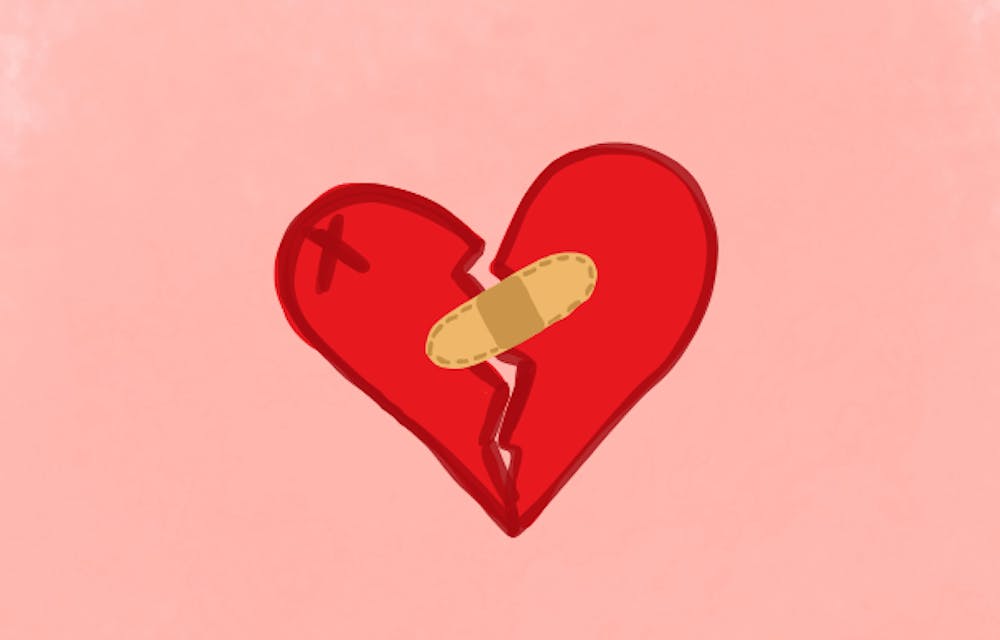Some weeks ago, I was interviewing someone for an article about a big project going on in town. When I asked about the origin of the idea, the organizer told me she had gone through a breakup and she “needed something to care about and work on." It made me think about the methods humans use to cope with pain and rejection.
Rejection comes into our lives in all shapes and sizes, and it is unavoidable that we will all end up experiencing this kind of feeling sooner or later. We usually tend to relate rejection to breakups, but the truth is that friendships and academic experiences can take you there as well.
On top of hard classes, students must worry about other matters such as getting a job, moving out or registering for new classes. Getting summer jobs, making after-graduation plans or applying for new scholarships are some of the challenges that depend on nothing but those in charge of admissions.
Having a good resume and communication skills are key when facing job interviews. However, that is not all that is needed. Sometimes, the vacancies open for a job position may be unbalanced in proportion to the number of applications.
It can be very frustrating to see how days pass by and you get nothing but rejection, but it sadly goes this way when applying for PhD programs and even working on courses where the professors may be too harsh.
Having established the pattern of how rejection works, it is easy to understand how it may happen with interpersonal relationships. Friends seem uninterested in continuing/maintaining your bond, and romantic partners break promises. People establish boundaries for personal reasons, and they can’t be blamed for the emotions that we may be feeling.
But what do we do if things do not work out like we thought they would? Creating alternative projects can be very difficult, but they can take your brain far away from the common thought of blaming yourself for not having done enough.
Focusing on new projects can help you develop skills, which can make you not only focus on something completely different but also feel accomplished for acquiring new skills. At the same time, these experiences can help strengthen your previous knowledge or teach you something new that may be meaningful in the future.
There are many new things to try to avoid falling into negative attitudes.
First, focusing on basic things with a different attitude can be key.
It may sound cheesy, but, in my experience, slowing down and thinking about what you are doing and enjoying, whatever it is, can give you a serotonin boost.
Let’s start with simple examples:
Every day, we have interactions with other people, yet we do not take a minute to concentrate on appreciating the moment. Making things for your friends, getting to know new people or going to places you have been before can make you think about something else apart from the hurt you may be feeling. Connecting with others can give you different points of view about everything. It helps you learn about yourself and others.
Another basic example may be doing sports. Even if you are not a sporty person, hitting a ball with some strangers during a sunset can be surprisingly healing. Sports are always a great idea to make new connections and to get new skills, like teamwork. Not only that, but trying a new sport you have always wanted or creating a workout/gym routine can help you learn how to be patient and how to take care of yourself.
Trying new hobbies can have a similar effect, and there are infinite options to try.
Artistic hobbies, like painting canvas or crocheting, are a good way to relax and learn to be patient. Some people find it reassuring to be artistic and that can help you feel accomplished.
It doesn’t always have to be an artistic activity that will help to take your mind off rejection. For those who get energy from social interaction, group games like escape rooms can help as well, by forming new bonds or skills. Just like a sport, this can help develop teamwork and interconnections, which may be very useful in the future.
All these examples are a good way of creating new skills. Moreover, reflecting on past wrongs and rights is always useful. Being critical of oneself is crucial for success, but being proud of our accomplishments is essential for our mental well-being.
All in all, rejection is a feeling that everyone feels from time to time. It brings pain, and it may develop an obsession that is hard to eradicate. Creating new experiences and focusing on new skills is key to future success. The most important thing is reflecting on your actions and being aware that you tried your best, even if, in the end, it did not work out like you thought it would.
Do you like this story? The Plainsman doesn't accept money from tuition or student fees, and we don't charge a subscription fee. But you can donate to support The Plainsman.





